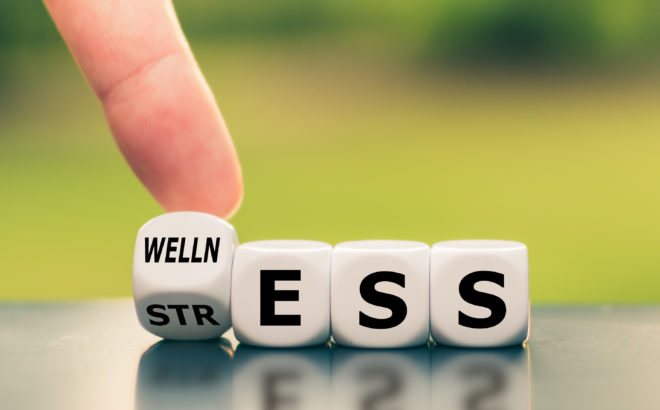Maintaining mental wellness during times of stress
World Mental Health Day 2020 feels like the most significant version of this day yet. The months of loss and isolation have affected all of us differently and prioritizing mental health has never been more important than it is now.
Mental health pertains to resilience and our ability to meet life’s challenges in a manner that enhances our chances at mastery of situations and adaptation to them. Just like physical health, mental health requires activities that promote wellness, flexibility and strength.
Mental illness describes the many afflictions that can affect our thoughts and mood. These illnesses, in turn, affect our emotional state and sense of well-being. As with physical illnesses, mental illness can have a significant impact on our ability to reach personal goals in our work, education and relationships.
One of the common challenges many people faced during the pandemic is isolation. The vast majority of us rely on routines for meeting with, enjoying and playing with friends and family. These routines have been disrupted. It takes additional steps and thoughtfulness for us to stay socially connected and virtual meetings or phone calls are not a full substitute for in-person connections.
Suggestions for those facing concerns include local support groups such as the National Alliance of Mental Illness (NAMI), SMART Recovery or AA/NA as well as social groups of interest. Many are offering virtual meetings. Although not the same as in-person exchanges, these virtual connections can be of assistance.
Be sure to seek help and support early when you are feeling anxious, depressed, overwhelmed and exceptionally irritable. You can visit our Diakon Family Life Services website by clicking here and learning the types of services available to meet your or a loved one’s needs.
Here are some self-care tips that can help your mental health:
1. Maintain healthy routines and eliminate unhealthy ones.
2. Exercise and keep your body moving; getting fresh air outside is good, too.
3. Connect, connect, connect! Be intentional about connecting in whatever way you can with those who love and support you.
4. Eat well. Nutrition does impact mental and emotional wellbeing.
5. Play and give yourself permission to unwind. That may mean you need to put down the phone.
6. Stay hydrated.
7. Get enough sleep.
8. Be intentional about what you read, listen to or watch on TV.
As we continue to navigate a challenging year, try to be intentional about getting your needs met; utilize technology and be willing to learn. And as we move toward elections and the holiday season, pay attention to the things that trigger your stress. Unplug if you need to and don’t overwhelm yourself by trying to make everything perfect. Make sure you are feeding your mind and spirit with information that promotes inspiration and possibilities.
That is not a comprehensive list of course, but it’s a start. Sometimes just being more aware of what triggers our stress can help us to experience a shift in perspective and pay attention to our own mental health.
~ Diakon Family Life Services staff


